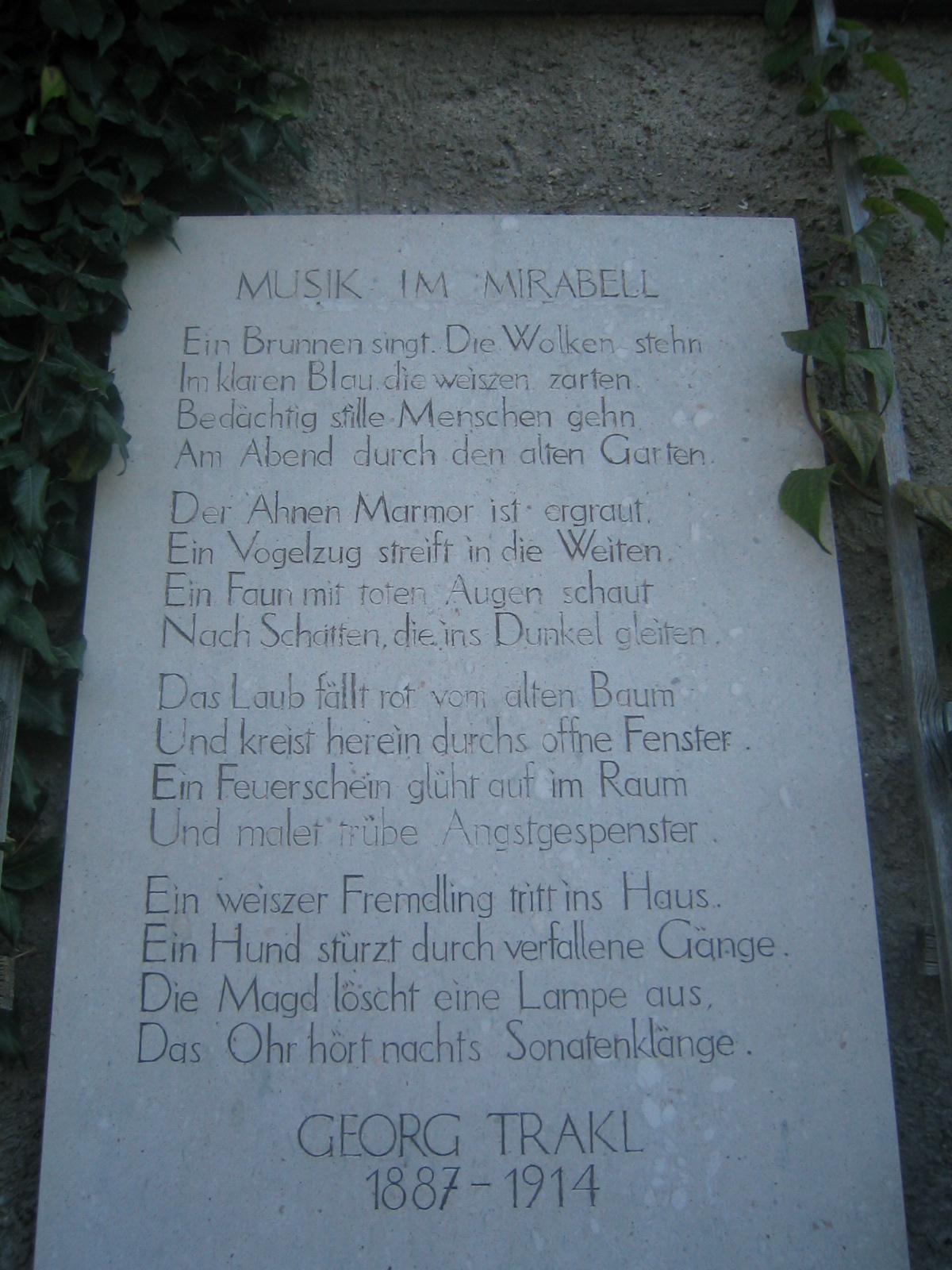|
Thomas Pernes
Thomas Pernes (25 February 1956 – 26 February 2018) was an Austrian avant-garde composer and performance artist who lived and worked in Vienna. He studied piano with Bruno Seidlhofer and composition with Roman Haubenstock-Ramati. The start of his career in contemporary music was marked by the première of the 1st string quartet at Wiener Konzerthaus in 1976. Already in the early 1980s he had widened the narrow sphere of interest of the classical avant-garde. At a time when the term crossover was not yet known he worked with elements of folk music and jazz just as he used electronics to enlarge the possibilities of composition. In the 90s he started developing his own form of music theatre, known as Klangtheater: "When Thomas Pernes speaks about sound theater as representation or reproduction of reality, one should think not only superficially of the everyday elements such as sound, fragments of conversation, thought, and quotation that are built into the montage. It is rathe ... [...More Info...] [...Related Items...] OR: [Wikipedia] [Google] [Baidu] |
Avant-garde
The avant-garde (; In 'advance guard' or ' vanguard', literally 'fore-guard') is a person or work that is experimental, radical, or unorthodox with respect to art, culture, or society.John Picchione, The New Avant-garde in Italy: Theoretical Debate and Poetic Practices' (Toronto: University of Toronto Press, 2004), p. 64 . It is frequently characterized by aesthetic innovation and initial unacceptability.Kostelanetz, Richard, ''A Dictionary of the Avant-Gardes'', Routledge, May 13, 2013 The avant-garde pushes the boundaries of what is accepted as the norm or the '' [...More Info...] [...Related Items...] OR: [Wikipedia] [Google] [Baidu] |
Holland Festival
The Holland Festival () is the oldest and largest performing arts festival in the Netherlands. It takes place every June in Amsterdam. It comprises theatre, music, opera and modern dance. In recent years, multimedia, visual arts, film and architecture were added to the festival roster. Performances take place in Amsterdam venues such as the city theatre, the opera, the Concertgebouw and Muziekgebouw concert halls and the Westergas factory site. Each edition is loosely themed, and the programme features both contemporary work and classical pieces presented with a modern edge. History The festival was founded in 1947 and features some of the world's top artists and performers, as well as lesser-known performers. Notable world premieres included Karlheinz Stockhausen's ''Helicopter String Quartet''. The festival introduced Maria Callas in the Netherlands, and was also the first to successfully set up a large symphonic tribute to Frank Zappa with "200 motels-the suite" in 2000 (af ... [...More Info...] [...Related Items...] OR: [Wikipedia] [Google] [Baidu] |
Universal Edition
Universal Edition (UE) is a classical music publishing firm. Founded in 1901 in Vienna, they originally intended to provide the core classical works and educational works to the Austrian market (which had until then been dominated by Leipzig-based publishers). The firm soon expanded to become one of the most important publishers of modern music. History In 1904, UE acquired Aibl publishers, and so acquired the rights to works by Richard Strauss, Max Reger, and other composers, but it was the arrival of Emil Hertzka as managing director in 1907 (who remained until his death in 1932) which really pushed the firm towards new music. Under Hertzka, UE signed contracts with a number of important contemporary composers, including Béla Bartók and Frederick Delius in 1908; Gustav Mahler and Arnold Schoenberg in 1909 (Mahler's '' Symphony No. 8'' was the first work UE acquired an original copyright to); Anton Webern and Alexander von Zemlinsky in 1910; Karol Szymanowski in 1912; Leoš J ... [...More Info...] [...Related Items...] OR: [Wikipedia] [Google] [Baidu] |
Ernst Jandl
Ernst Jandl (; 1 August 1925 – 9 June 2000) was an Austrian writer, poet, and translator. He became known for his experimental lyric, mainly sound poems (''Sprechgedichte'') in the tradition of concrete and visual poetic forms. Poetry Influenced by Dada he started to write experimental poetry, first published in the journal ''Neue Wege'' ("New Ways") in 1952. He was the life partner of Friederike Mayröcker. In 1973 he co-founded the Grazer Autorenversammlung in Graz, became its vice president in 1975 and was its president from 1983 to 1987. His poems are characterized by German language word play, often at the level of single characters or phonemes. For example, his famous univocalic poem "ottos mops" (in English, "otto's pug") uses only the vowel "o". Of course, poems like this cannot easily be translated into other languages. Most of his poems are better heard than read. His lectures were always known as very impressive events, because of the particular way he prono ... [...More Info...] [...Related Items...] OR: [Wikipedia] [Google] [Baidu] |
Franz Schubert
Franz Peter Schubert (; 31 January 179719 November 1828) was an Austrian composer of the late Classical and early Romantic eras. Despite his short lifetime, Schubert left behind a vast ''oeuvre'', including more than 600 secular vocal works (mainly lieder), seven complete symphonies, sacred music, opera Opera is a form of theatre in which music is a fundamental component and dramatic roles are taken by singers. Such a "work" (the literal translation of the Italian word "opera") is typically a collaboration between a composer and a libr ...s, incidental music, and a large body of piano and chamber music. His major works include "Erlkönig (Schubert), Erlkönig" (D. 328), the Trout Quintet, Piano Quintet in A major, D. 667 (''Trout Quintet''), the Symphony No. 8 (Schubert), Symphony No. 8 in B minor, D. 759 (''Unfinished Symphony''), the Symphony No. 9 (Schubert), "Great" Symphony No. 9 in C major, D. 944, the String Quintet (Schubert), String Quintet (D. 956), ... [...More Info...] [...Related Items...] OR: [Wikipedia] [Google] [Baidu] |
Anthony Burgess
John Anthony Burgess Wilson, (; 25 February 1917 – 22 November 1993), who published under the name Anthony Burgess, was an English writer and composer. Although Burgess was primarily a comic writer, his Utopian and dystopian fiction, dystopian satire ''A Clockwork Orange (novel), A Clockwork Orange'' remains his best-known novel. In 1971, it was adapted into a controversial A Clockwork Orange (film), film by Stanley Kubrick, which Burgess said was chiefly responsible for the popularity of the book. Burgess produced numerous other novels, including the Enderby quartet, and ''Earthly Powers''. He wrote librettos and screenplays, including the 1977 TV mini-series ''Jesus of Nazareth (miniseries), Jesus of Nazareth''. He worked as a literary critic for several publications, including ''The Observer'' and ''The Guardian'', and wrote studies of classic writers, notably James Joyce. A versatile linguist, Burgess lectured in phonetics, and translated ''Cyrano de Bergerac (play), ... [...More Info...] [...Related Items...] OR: [Wikipedia] [Google] [Baidu] |
Georg Trakl
Georg Trakl (3 February 1887 – 3 November 1914) was an Austrian poet and the brother of the pianist Grete Trakl. He is considered one of the most important Austrian Expressionists. He is perhaps best known for his poem " Grodek", which he wrote shortly before he died of a cocaine overdose. Life and work Trakl was born and lived the first 21 years of his life in Salzburg. His father, Tobias Trakl (11 June 1837, Ödenburg/Sopron – 1910), was a dealer of hardware from Hungary, while his mother, Maria Catharina Halik (17 May 1852, Wiener Neustadt – 1925), was a housewife of partly Czech descent; she was a drug addict and left the education to a French "gouvernante", who brought Trakl into contact with French language and literature at an early age. His sister Grete Trakl was a musical prodigy; with her he shared artistic endeavors. Poems allude to an incestuous relationship between the two. Trakl attended a Catholic elementary school, although his parents were Pr ... [...More Info...] [...Related Items...] OR: [Wikipedia] [Google] [Baidu] |
Kleine Zeitung
''Kleine Zeitung'' (, ''Small Newspaper'') is an Austrian newspaper based in Graz and Klagenfurt. As the largest regional newspaper in Austria, covering the federal states Styria and Carinthia with East Tyrol, the paper has around 800,000 readers. History and profile ''Kleine Zeitung'' was founded in 1904 by the ''Katholischer Preßverein'' (Catholic Press Association). The first issue was published on Tuesday, 22 November 1904. The paper is based in Graz as well as in Klagenfurt. From its inception, it was designed as a paper to be read by the masses, covering general and regional news topics at a reasonable cost. The paper is owned by the Styria Media Group, which also owns the daily newspaper ''Die Presse''. ''Kleine Zeitung'' is published in the half Berlin format. ''Kleine Zeitung'' has a center-right political leaning. Fritz Csoklich served as the editor-in-chief of the paper for thirty years until 1994. ''Kleine Zeitung'' is the recipient of the 2005 European Newspaper A ... [...More Info...] [...Related Items...] OR: [Wikipedia] [Google] [Baidu] |
Wiener Musikverein
The ( or ; ), commonly shortened to , is a concert hall in Vienna, Austria, which is located in the Innere Stadt district. The building opened in 1870 and is the home of the Vienna Philharmonic orchestra. The acoustics of the building's 'Great Hall' () have earned it recognition alongside other prominent concert halls, such as the Konzerthaus Berlin, Konzerthaus in Berlin, the Concertgebouw in Amsterdam and Symphony Hall, Boston, Symphony Hall in Boston. With the exception of Boston's Symphony Hall, none of these halls was built in the modern era with the application of architectural acoustics, and all share a long, tall and narrow Shoebox style, shoebox shape. Building The 's main entrance is situated on Musikvereinsplatz, between Karlsplatz and . The building is located behind the Hotel Imperial that fronts on Kärntner Ring, which is part of the Vienna Ring Road (Ringstraße). It was erected as the new concert hall run by the Gesellschaft der Musikfreunde, Society of Frien ... [...More Info...] [...Related Items...] OR: [Wikipedia] [Google] [Baidu] |
Wiener Festwochen
__NOTOC__ The Wiener Festwochen (Vienna Festival) is a cultural festival in Vienna that takes place every year for five or six weeks in May and June. The Wiener Festwochen was established in 1951, when Vienna was still occupied by the four Allies. The opening of the Wiener Festwochen is an open-air event with free admission held in the square in front of Vienna’s City Hall. Each year the festival attracts about 180,000 visitors. Directors of the festival include: *1951-1958: Adolph Ario *1959: Rudolf Gamsjäger *1960-1964: Egon Hilbert *1964-1977: Ulrich Baumgartner *1978-1979: Gerhard Freund *1980-1984: Helmut Zilk *1984-1991: Ursula Pasterk *1991-1996: Klaus Bachler *1997-2001: Luc Bondy / Klaus-Peter Kehr / Hortensia Völckers *2002–2013: Luc Bondy *2014–2016: Markus Hinterhäuser *2017–2021: Tomas Zierhofer-Kin *2019-present: Christophe Slagmuylder, whose term ends in 2024 See also *List of opera festivals This is an inclusive list of opera festiva ... [...More Info...] [...Related Items...] OR: [Wikipedia] [Google] [Baidu] |
Ars Electronica
Ars Electronica Linz GmbH is an Austrian cultural, educational and scientific institute active in the field of new media art, founded in Linz in 1979. It is based at the Ars Electronica Center (AEC), which houses the Museum of the Future, in the city of Linz. Ars Electronica's activities focus on the interlinkages between art, technology and society. It runs an annual festival, and manages a multidisciplinary media arts R&D facility known as the Futurelab. It also confers the Prix Ars Electronica awards. History Ars Electronica began with its first festival in September 1979. Its founders were Hannes Leopoldseder, Hubert Bognermayr, Herbert W. Franke, and Ulrich Rützel. The festival was held biennially at first, and annually since 1986. The Prix Ars Electronica was inaugurated in 1987 and has been awarded every year since then. Ars Electronica Linz GmbH was incorporated as a limited company in 1995. The Ars Electronica Center, together with the Futurelab, opened in 1996, and ... [...More Info...] [...Related Items...] OR: [Wikipedia] [Google] [Baidu] |
Brucknerfest
The International Brucknerfest Linz is an annual series of music events held in Linz. The music event series is named after Anton Bruckner and is organised by the Brucknerhaus. The Brucknerfest was introduced in 1974 on the initiative of the artistic director of the Brucknerhaus Horst Stadlmayr and started with an orchestral concert under Herbert von Karajan. Since 1977, the Bruckner Festival has been a fixed component of Austrian cultural events alongside the Vienna Festival and the Salzburg Festival. In 2005, the festival took place from 11 September to 2 October. The keynote speaker was Anton Zeilinger. The Bruckner Orchestra Linz played Bruckner's 9th Symphony under the direction of Dennis Russell Davies. Furthermore, the Vienna Philharmonic under Pierre Boulez Bruckner's 7th Symphony, and the Staatskapelle Dresden played Bruckner's 4th Symphony under the conduct of Muyng-Whun Chung. Furthermore, the Orchestre Philharmonique de Monte-Carlo (conductor Marek Janowski), the ... [...More Info...] [...Related Items...] OR: [Wikipedia] [Google] [Baidu] |






